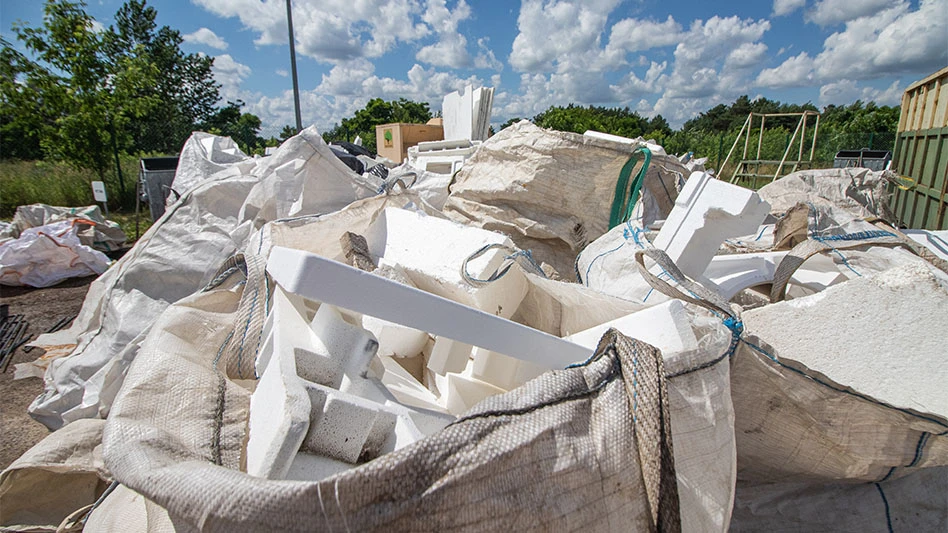
Michael Timpane, who works out of Florida as a principal and vice president of process optimization and material recovery for RRS, which is based in Ann Arbor, Michigan, cautioned attendees of the Contracting Control workshop during the 2017 Paper & Plastics Recycling Conference on many points related to municipal recycling contracts, including education enforcement, which he said is the hardest thing to do in a contract.
He also urged material recovery facility (MRF) operators to fix their floor pricing based on their profits rather than on their costs and to base their minimum performance on the presence of available recyclables in the incoming material stream and not on the total tonnage of incoming material, which will include nonrecyclables. “If based on inbound materials, you are never going to get to your number,” Timpane said.
Regarding single-stream MRFs, he said they “clean to minimum standards” but “have a hard time getting to maximum standards.”
Timpane said the average residue rate for single-stream MRFs is 18 percent, with residue increasing with programs’ permissiveness.
He advised performing regular audits at a frequency of once or twice annually to refresh a MRF’s revenue basis. Haulers, MRFs and communities need to enforce what is allowed in the stream based on these audits, Timpane said.
MRFs are not considered part of the recycling service, he said, though they are necessary to get incoming material into a commodity state. Contracts should take the price of these cleaning services into account, Timpane suggested. To be successful, recycling needs to be based on a fee-for-service model, he added.
While recycling collection costs increased to $6.20 per household from $3.50 per household in eight years, Timpane added that recycling collection only accounts for 30 percent of a resident’s overall garbage bill.
The composite average price for recyclables was $71 per ton as of October 2017, he said, declining from an average price of $104 per ton in May. Timpane added that commodity pricing declines 1.3 percent per year naturally, according to data from the World Bank, based on improvements in extracting and substituting.
Contracts should include funding for education enforcement, he said, adding that “municipalities are the only ones that can enforce education.” Contracts should have a clause specifying this, he added. “Community based social marketing best way to do this,” Timpane suggested. This has nothing to do with social media, however, which he said offers little value.
He also advised that contracts include the right to reject material and refuse service at the MRF. This is important when excessive contamination or dangerous materials are present. Contracts should define unacceptable materials and what to do with them, Timpane added. Such clauses are “rarely used but essential,” he said, and can even encompass unsafe driver behavior.
Timpane suggested including language in contracts that specifies quarterly or more frequent meetings. He added that the MRF operator should provide feedback on quality, volume and markets.
He also said contracts should specify inbound and outbound material specs and minimum grades to be made.
While contracts commonly include language related to force majeure disruptions, Timpane said acceptable instances should be spelled out and should include market disruptions, work stoppages and changes to law, say as pay as you throw and deposit systems.
Additionally, he advised setting limitations on tours and other special services, which can interfere with the efficient operation of the facility.
Timpane reminded attendees that municipal recycling contracts “do not run by themselves.” Instead, he said, they take maintenance in the field, at the office and with customers. He advised attendees to “talk to your customers a lot,” and urged them to make that extra call.
The 2017 Paper & Plastics Recycling Conference was Oct. 11-13 in Chicago.
Latest from Recycling Today
- Alpla calls 2024 year of recycling growth
- Altilium says agreement puts it on lithium recycling path
- NWRA, SWANA partner to address lithium-ion batteries
- Corinth, Texas, renews waste contract with CWD
- Fresh Perspective: Sarah Zwilsky
- Plastics Industry Association announces leadership changes
- QCC celebrates 50th anniversary
- Venture Metals acquires 2 nonferrous processors





